August 14, 2014 •
OMB Relaxes Ban on Federal Lobbyists
The Office of Management and Budget issued revised guidance on August 13, 2014, regarding the prohibition against appointing or re-appointing federal lobbyists to serve on advisory committees, boards, and commissions. The revised guidance clarifies the ban only applies to federal […]
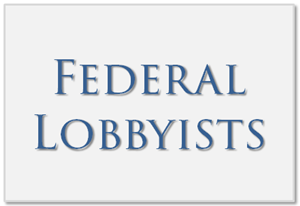 The Office of Management and Budget issued revised guidance on August 13, 2014, regarding the prohibition against appointing or re-appointing federal lobbyists to serve on advisory committees, boards, and commissions.
The Office of Management and Budget issued revised guidance on August 13, 2014, regarding the prohibition against appointing or re-appointing federal lobbyists to serve on advisory committees, boards, and commissions.
The revised guidance clarifies the ban only applies to federal lobbyists serving in their individual capacity. In this situation, individual capacity refers to individuals appointed to committees to exercise their own individual best judgment on behalf of the government.
Federal lobbyists appointed in a representative capacity, meaning they are appointed for the express purpose of providing a committee with the views of a nongovernmental entity, a recognizable group of persons or nongovernmental entities, or a state or local government, are not subject to the ban.
August 14, 2014 •
Wisconsin Burke to Face Gov. Walker in November
Democrat Mary Burke will face Republican Gov. Scott Walker in the November general election. Burke, a former Trek Bicycle executive and state commerce secretary, is the first woman to be nominated by a major party for governor in Wisconsin. A […]
 Democrat Mary Burke will face Republican Gov. Scott Walker in the November general election.
Democrat Mary Burke will face Republican Gov. Scott Walker in the November general election.
Burke, a former Trek Bicycle executive and state commerce secretary, is the first woman to be nominated by a major party for governor in Wisconsin.
A recent Marquette University Law School poll found women support Burke by a 48 to 41 percent margin, while men support Walker 52 to 42 percent.
August 13, 2014 •
State Republican Parties Challenge SEC Pay-to-Play Rule
The Republican parties of New York and Tennessee have filed suit in U.S. District Court for the District of Columbia challenging Securities and Exchange Commission (SEC) Rule 206(4)-5. The plaintiffs allege the rule, which imposes restrictions upon investment advisors and […]
 The Republican parties of New York and Tennessee have filed suit in U.S. District Court for the District of Columbia challenging Securities and Exchange Commission (SEC) Rule 206(4)-5. The plaintiffs allege the rule, which imposes restrictions upon investment advisors and their covered associates making contributions to officials of state and local government entities, violates the freedom of speech protections of the First Amendment.
The Republican parties of New York and Tennessee have filed suit in U.S. District Court for the District of Columbia challenging Securities and Exchange Commission (SEC) Rule 206(4)-5. The plaintiffs allege the rule, which imposes restrictions upon investment advisors and their covered associates making contributions to officials of state and local government entities, violates the freedom of speech protections of the First Amendment.
The suit also takes the position that the SEC does not have the authority to regulate campaign contributions.
If struck down, the elimination of the rule would make it easier for any state governor making a run for president to raise money from the financial sector.
August 13, 2014 •
Texas PAC Restriction Struck Down as Unconstitutional
On August 12, 2014, the U.S. Fifth Circuit Court of Appeals struck down a state law restricting expenditures by certain political committees. The law prevented a general-purpose committee from making political expenditures of more than $500 until a treasurer appointment […]
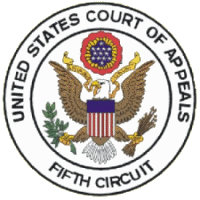 On August 12, 2014, the U.S. Fifth Circuit Court of Appeals struck down a state law restricting expenditures by certain political committees.
On August 12, 2014, the U.S. Fifth Circuit Court of Appeals struck down a state law restricting expenditures by certain political committees.
The law prevented a general-purpose committee from making political expenditures of more than $500 until a treasurer appointment had been on file with the Ethics Commission for at least 60 days and contributions had been accepted from at least 10 persons.
The same restriction did not apply to specific-purpose committees. The court held the restriction to be an unconstitutional burden on free speech.
August 13, 2014 •
Polls to Open Friday for Hawaii Precincts Affected by Iselle
A special election will be held on Friday, August 15, for residents of the rural Puna region. Two voting precincts in the region were closed during Saturday’s primary as Tropical Storm Iselle battered the Big Island. Roughly 8,000 registered voters […]
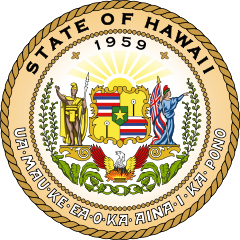 A special election will be held on Friday, August 15, for residents of the rural Puna region. Two voting precincts in the region were closed during Saturday’s primary as Tropical Storm Iselle battered the Big Island.
A special election will be held on Friday, August 15, for residents of the rural Puna region. Two voting precincts in the region were closed during Saturday’s primary as Tropical Storm Iselle battered the Big Island.
Roughly 8,000 registered voters who were unable to cast ballots will likely decide the outcome of the hotly contested Democratic primary for U.S. Senate. The race between U.S. Sen. Brian Schatz and U.S. Rep. Colleen Hanabusa remains too close to call.
August 12, 2014 •
Florida Legislature Passes Changes to Congressional District Map
Following an order of the Leon County Circuit Court, Florida’s Legislature approved a bill to alter the boundaries of seven congressional districts. Judge Terry Lewis ruled the 5th and 10th districts were drawn to benefit the Republican Party in violation […]
 Following an order of the Leon County Circuit Court, Florida’s Legislature approved a bill to alter the boundaries of seven congressional districts. Judge Terry Lewis ruled the 5th and 10th districts were drawn to benefit the Republican Party in violation of the state constitution. The court set a deadline of August 15 for lawmakers to redraw the congressional map and for state officials to propose a special election schedule.
Following an order of the Leon County Circuit Court, Florida’s Legislature approved a bill to alter the boundaries of seven congressional districts. Judge Terry Lewis ruled the 5th and 10th districts were drawn to benefit the Republican Party in violation of the state constitution. The court set a deadline of August 15 for lawmakers to redraw the congressional map and for state officials to propose a special election schedule.
Judge Lewis will now review the proposed map and determine when the new districts will go into effect. The altered boundaries would also affect the 6th, 7th, 9th, 11th, and 17th districts.
Following passage of the bill, the Legislature adjourned its special session on Monday, August 11.
August 8, 2014 •
Virginia Governor Sets Special Election to Replace Rep. Eric Cantor
Governor Terry McAuliffe declared a special election will take place on November 4, 2014 to fill the seat vacated by Representative Eric Cantor. Representative Cantor, who lost the Republican primary election on June 10, recently announced that he would resign […]
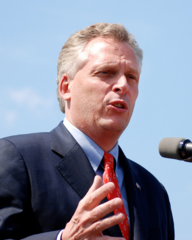 Governor Terry McAuliffe declared a special election will take place on November 4, 2014 to fill the seat vacated by Representative Eric Cantor.
Governor Terry McAuliffe declared a special election will take place on November 4, 2014 to fill the seat vacated by Representative Eric Cantor.
Representative Cantor, who lost the Republican primary election on June 10, recently announced that he would resign from Congress effective August 18.
Cantor has been the representative from Virginia’s 7th District for the last seven terms.
Photo of Gov. Terry McAuliffe by Kate Wellington on Wikimedia Commons.
August 8, 2014 •
Electronic Filing for Campaign Reports Now Available in Vermont
Secretary of State Jim Condos announced candidates, parties, and political action committees are now able to file financial reports online. Use of the online system is currently voluntary but becomes mandatory on January 1, 2015. Electronic filing is available here.
 Secretary of State Jim Condos announced candidates, parties, and political action committees are now able to file financial reports online.
Secretary of State Jim Condos announced candidates, parties, and political action committees are now able to file financial reports online.
Use of the online system is currently voluntary but becomes mandatory on January 1, 2015.
Electronic filing is available here.
August 8, 2014 •
New Mexico Supreme Court to Hear Contribution Dispute
The state Supreme Court has issued a preliminary order and set a hearing on a campaign finance lawsuit filed by Democratic gubernatorial candidate Gary King. The preliminary order blocks Secretary of State Dianna Duran from forcing King to handover $10,900 […]
 The state Supreme Court has issued a preliminary order and set a hearing on a campaign finance lawsuit filed by Democratic gubernatorial candidate Gary King. The preliminary order blocks Secretary of State Dianna Duran from forcing King to handover $10,900 in contributions.
The state Supreme Court has issued a preliminary order and set a hearing on a campaign finance lawsuit filed by Democratic gubernatorial candidate Gary King. The preliminary order blocks Secretary of State Dianna Duran from forcing King to handover $10,900 in contributions.
At the center of the dispute is a state law limiting campaign contributions to $5,200 for a primary election and $5,200 for a general election. King’s post-primary report reflected contributions received after the date of the primary and in amounts more than the $5,200 general election limit, but at or under the $10,400 two-election limit.
Duran contends a candidate may not accept contributions attributable to the primary after the election has occurred when offered by donors who have given the maximum amount for the general election. The Office of the Secretary of State has previously advised candidates to provide clarification on the campaign report if a contribution should be applied to more than one election.
The hearing is scheduled for August 28, 2014.
August 8, 2014 •
News You Can Use Digest – August 8, 2014
Federal: Tea Party Group Loses Appeal on Corporate PAC Limits BusinessWeek – Andreew Zajac | Published: 8/5/2014 A three-judge panel of the U.S. Court of Appeals in Washington, D.C. kept in place limits on political donations by corporate PACs. The judges […]

Federal:
Tea Party Group Loses Appeal on Corporate PAC Limits
BusinessWeek – Andreew Zajac | Published: 8/5/2014
A three-judge panel of the U.S. Court of Appeals in Washington, D.C. kept in place limits on political donations by corporate PACs. The judges turned aside a challenge by Stop This Insanity Inc., an Arizona-based not-for-profit organization created to advance the values of the tea party movement. The group sought to allow corporate PACs to accept funds from the general public and to eliminate a $5,000-a-person annual limit on contributions earmarked for independent support or opposition to candidates.
From the States and Municipalities:
Alabama – Powerhouse GOP Group Snared in Money Scheme
Politico – Alexander Burns | Published: 8/4/2014
The Republican State Leadership Committee (RSLC) has spent tens of millions of dollars to flip state legislative chambers and redraw the congressional map in Republicans’ favor, and is poised to spend millions more this fall. A report by a Washington law firm detailed an investigation into alleged misconduct by multiple RSLC officials during the crucial 2010 election cycle. It charged that national leaders conspired improperly with the leader of the Alabama Republican Party to use the RSLC as a pass-through for controversial Indian tribe donations, essentially laundering money from the gaming industry by routing it out of state and then back into Alabama.
Florida – Deadline Set to Redraw Voting Map in Florida
New York Times – Frances Robles | Published: 8/1/2014
Circuit Court Judge Terry Lewis ordered Florida lawmakers to revise a map of 27 congressional districts by August 15, raising the possibility of delayed elections in November. The judge previously found the current map violated a state prohibition of gerrymandering. Lewis said until a new map is in place, it will be “difficult, if not impossible” to evaluate whether an election with new district lines is feasible before the new Congress takes office in January. The primary is set to take place August 26. A hearing, if needed, is set for August 20 to hear objections to the revised map or a proposed election schedule.
Maryland – Despite 2012 Law, Casino Interests and Md. Candidates Remain Intertwined
Washington Post – John Wagner | Published: 8/4/2014
Maryland’s ban on casino owners making campaign contributions is limited and has done little to stop the flow of funds associated with one prolific donor – William Rickman, Jr., owner of the Casino at Oceans Downs. Rickman has stopped giving as an individual and through the company he set up to operate the casino. But money has been donated to candidates through a separate Rickman company that owns the racetrack where the casino was built, and through a company established to provide food and beverage services there, among other avenues. Critics say the contributions tied to Rickman offer a prime example of how campaign finance reform often falls short of its goal: donors simply find other ways to give.
Massachusetts – Gov. Deval Patrick Signs Super PAC Disclosure Law
MassLive.com – Shira Schoenberg | Published: 8/4/2014
Massachusetts Gov. Deval Patrick signed a bill into law that increases individual campaign contribution limits for state candidates and requires additional disclosures for super PACs. Beginning immediately, the law requires that all groups making independent expenditures to disclose their donors within seven days, or within 24 hours if it is 10 days or less before an election. Beginning in January, the law raises the amount an individual can contribute to a state candidate from $500 to $1,000.
Massachusetts – State Fines Super PAC that Backed Walsh
CommonWealth Magazine – Paul McMorrow | Published: 8/6/2014
The two super PACs that supported Boston Mayor Martin Walsh in the closing days of the 2013 election are settling claims they violated Massachusetts campaign finance law. The groups behind $500,000 in pro-Walsh television ads, One New Jersey and One Boston, have agreed to pay $30,000 in fines. The money for the ads originated with the American Federation of Teachers, something that did not become known until after the election. The Massachusetts Office of Campaign and Political Finance found One New Jersey failed to identify itself as a political committee and One Boston failed to disclose the true origins of its donations.
Mississippi – Miss. Appeals Federal Judge’s Block of Small-Group Political Spending Laws; Hearing Sept. 3
Greenfield Reporter; Associated Press – | Published: 8/4/2014
The state of Mississippi is asking a federal appeals court to overturn a lower court ruling that part of its campaign finance law creates an unconstitutional burden for people or groups that spend at least $200 to support or oppose a ballot initiative. Opponents of the law argue the threshold is so low it would be impossible for a group of people to run a quarter-page ad in their local newspaper without having to become a political committee. State Attorney General Jim Hood said the disclosure requirements are “substantially related to the sufficiently important government interest” of educating voters about those who seek to influence their vote.
Tennessee – Conservatives See Potential in Tennessee Judicial Race
New York Times – Alan Blinder | Published: 8/5/2014
Most elections to retain state Supreme Court justices are bland affairs, but this year, Tennesseans have been inundated with mailings, venomous campaign ads, and more than $1 million of local and out-of-state money for the battle over three of the five seats on the court. The big push against the incumbents has come from Lt. Gov. Ron Ramsey. His PAC gave the largest recorded campaign contribution, more than $400,000, to a conservative group opposing the justices. Ramsey’s efforts have drawn national groups into the fight, like the Charles and David Koch-affiliated Americans for Prosperity, the State Government Leadership Foundation, and the Republican State Leadership Committee.
Utah – Utah Lobbyists Required to Wear Badges at Capitol
Charlotte Observer – Michelle Price (Associated Press) | Published: 8/1/2014
As of August 1, lobbyists in Utah must don name tags featuring the word “lobbyist” whenever they are trying to influence public officials at the Capitol. The law also requires lobbyists to disclose who they are working for before advocating to an official. Frank Pignanelli, who has been a lobbyist for the last 17 years after spending a decade as a lawmaker, said wearing badges is irritating and unnecessary. “I just think it’s silly and it’s not necessary and it smacks of a nanny state; our forefathers didn’t cross the plains so we can stick badges on lobbyists,” said Pignanelli.
Vermont – Searchable Campaign Finance System Goes Live
Burlington Free Press – Terri Hallenbeck | Published: 8/5/2014
Vermont now has a searchable computer system that will make it easier to track how much money candidates are raising and spending. Candidates, political parties, and PACs may start using it for campaign finance reports due later in August. Those who prefer the old paper system may continue using it this year, said Secretary of State Jim Condos. The new system becomes mandatory in January.
Wisconsin – Another Blow to Campaign Finance Disclosure in Wisconsin?
Captal Times – Jack Craver | Published: 8/1/2014
The Wisconsin Government Accountability Board (GAB) recently told a number of electioneering groups that they are welcome to disclose their spending activity and donors, but are not required to. That is a change from previous years, when organizations that expressly advocated for the election or defeat of a candidate have been required to periodically submit reports that listed their donors and spending activity. Groups that engaged solely in issue advocacy were not required to disclose. Now, however, the GAB is allowing even organizations that engage in a certain amount of express advocacy to forego disclosure.
Wyoming – Federal Court Rules in Favor of Third-Party Fundraising in Wyoming
Casper Star-Tribune – Trevor Graff | Published: 8/6/2014
A federal judge ruled a provision of Wyoming law that restricted third-party candidate fundraising is unconstitutional and cannot be enforced. Jennifer Young, who is running for secretary of state as a Constitution Party candidate, and one of her supporters sued the state. They challenged a campaign finance law that limited fundraising for candidates whose parties do not participate in primary elections. The contested provision barred third-party candidates from accepting political contributions before the primary election. Major party candidates faced no such restriction.
 State and Federal Communications produces a weekly summary of national news, offering more than 80 articles per week focused on ethics, lobbying, and campaign finance.
State and Federal Communications produces a weekly summary of national news, offering more than 80 articles per week focused on ethics, lobbying, and campaign finance.
News You Can Use is a news service provided at no charge only to clients of our online Executive Source Guides, or ALERTS™ consulting clients.
August 7, 2014 •
Jurisdictions Added to our Website
The number of municipalities and regional governments our research associates track continues to grow. We now cover more than 230 municipalities and local governments. This is part of a continuous effort to better serve the needs of our clients. In […]
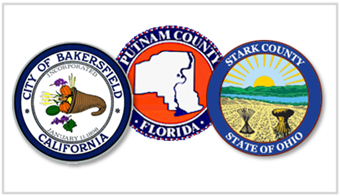 The number of municipalities and regional governments our research associates track continues to grow. We now cover more than 230 municipalities and local governments. This is part of a continuous effort to better serve the needs of our clients.
The number of municipalities and regional governments our research associates track continues to grow. We now cover more than 230 municipalities and local governments. This is part of a continuous effort to better serve the needs of our clients.
In that effort, we have recently added abridged jurisdictions to our website. These entries, condensed due to the limited number of relevant local laws, provide the core information our clients need for their government relations work.
The new jurisdictions are:
Bakersfield, California
Putnam County, Florida
Stark County, Ohio
U.S. District Judge Alan B. Johnson has approved a settlement agreement ending a lawsuit challenging the fundraising restriction faced by third-party candidates. Jennifer Young, the Constitution Party’s candidate for secretary of state, and her supporter Donald Wills challenged a state […]
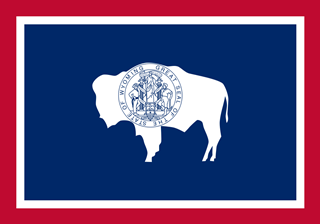 U.S. District Judge Alan B. Johnson has approved a settlement agreement ending a lawsuit challenging the fundraising restriction faced by third-party candidates.
U.S. District Judge Alan B. Johnson has approved a settlement agreement ending a lawsuit challenging the fundraising restriction faced by third-party candidates.
Jennifer Young, the Constitution Party’s candidate for secretary of state, and her supporter Donald Wills challenged a state campaign finance law prohibiting candidates from accepting contributions for the general election before the primary election. Since third-party candidates do not participate in the primary elections, they were prohibited from fundraising until August of an election year.
The court order finds the fundraising restriction unconstitutional and unenforceable against minor party candidates, independent candidates, and potential contributors.
August 6, 2014 •
Quebec Develops Searchable Database for Election Law Violators
Lucie Fiset, the chief electoral officer of Quebec, plans to set up a searchable online registry for accused violators of the province’s election laws. The database is slated to be operational by March 2015. This initiative is part of Fiset’s […]

Lucie Fiset, the chief electoral officer of Quebec, plans to set up a searchable online registry for accused violators of the province’s election laws. The database is slated to be operational by March 2015. This initiative is part of Fiset’s broader strategic plan to promote transparency and tighten surveillance of political contributions and election spending.
Recently, the province has been examining links between public construction contracts, organized crime, and provincial and municipal political contributions after investigators testified about a political financing scheme involving straw men contributing to political parties using money from a third party, thus skirting contribution limits, residency requirements, and the ban on contributions from entities.
With the new database, the public and the media will be able to search or cross-reference charges against individuals, companies, organizations, and parties accused of violating election laws.
August 5, 2014 •
MA Campaign Finance Bill Signed into Law
On January 1, 2015, the limit for individuals making contributions to Massachusetts state candidates increases from $500 to $1,000, due to a new campaign finance bill signed by Gov. Deval Patrick. Among the many changes in House Bill 4366, signed […]
 On January 1, 2015, the limit for individuals making contributions to Massachusetts state candidates increases from $500 to $1,000, due to a new campaign finance bill signed by Gov. Deval Patrick.
On January 1, 2015, the limit for individuals making contributions to Massachusetts state candidates increases from $500 to $1,000, due to a new campaign finance bill signed by Gov. Deval Patrick.
Among the many changes in House Bill 4366, signed on August 1, are new reporting requirements for political committees or other entities making independent expenditures, new disclosure requirements for certain types of political advertising, and the creation of a campaign finance and disclosure task force.
According to MassLive.com, Patrick said the bill, conceptually, was “exactly right.”
State and Federal Communications, Inc. provides research and consulting services for government relations professionals on lobbying laws, procurement lobbying laws, political contribution laws in the United States and Canada. Learn more by visiting stateandfed.com.

